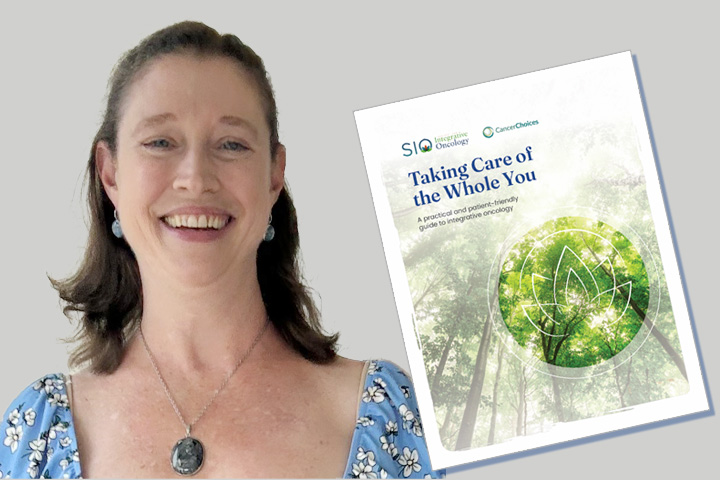Stand Up, Speak Out

Funding scientific research makes a big difference for pancreatic cancer patients.
Improved chemotherapy regimens. Molecular profiling of tumors leading to targeted treatments. New surgical techniques. Chemotherapy before surgery potentially making more patients eligible for surgery. Finding drugs for the “undruggable” KRAS mutation. Those are just a few of the new approaches available to pancreatic cancer patients in the last few years.
In the research pipeline are exciting therapies such as vaccines, other immunotherapy approaches, Tumor Treating Fields (TTFields), pan-KRAS inhibitors, and earlier detection models using liquid biopsies or AI. And every day, research scientists are learning more about the basic biology of pancreatic cancer: how it forms, how it spreads, and how to combat the stroma, that dense fibrous tissue surrounding pancreatic tumors that makes drug delivery difficult. All these findings will translate into more effective therapies.
None of this would have been possible without the tireless efforts of scientists who, in essence, ask one simple question: How can we extend and improve the lives of pancreatic cancer patients?
Cuts and More Cuts
As you surely know, cancer research is under siege. Steep budget cuts, with further proposed cuts on the horizon, are already causing upheaval in the science community and undue stress and worry for patients. The National Cancer Institute (NCI)—the world’s largest source of funding for cancer research—lost more than $300 million and hundreds of staff members from January to March 2025. The proposed 2026 budget for the NCI is $4.531 billion, a 37.3 percent decrease from 2025 funding.
Making things worse, says Elizabeth Jaffee, M.D., of Johns Hopkins Medicine (Baltimore, Maryland), is that the Trump Administration wants the National Institutes of Health (NIH) and NCI to allocate all five years of grant funding in the first year. “What this means is that the already low payline (only eight to 10 percent of grants are funded each grant cycle) has been reduced to four percent as of April 2025,” she explains. “The implications are devastating to the future of cancer research and the U.S.’s pipeline of future innovators.”
Jaffee’s career has been split between treating patients and her research focusing on the development of immune-based therapies in cancer treatment, with a strong emphasis on pancreatic cancer. Her appointments are many. She is Deputy Director of the Sidney Kimmel Comprehensive Cancer Center, the Dana and Albert “Cubby” Broccoli Professor of Oncology at Johns Hopkins University School of Medicine, and the Co-Director, Gastrointestinal Cancers Program at Johns Hopkins Medicine, as well as a past Chair of the NCI’s National Cancer Advisory Board. She is also Chief Medical Advisor of the Lustgarten Foundation and is a member of the Let’s Win Scientific Advisory Board.
Opposing Voices
There are numerous groups that oppose these broad cuts. For example, organizations like the American Association of Cancer Research (AACR) and the American Cancer Society as well as pancreatic cancer-specific organizations like the Lustgarten Foundation, the world’s largest private funder of pancreatic cancer research, and well-known patient advocacy group Pancreatic Cancer Action Network (PanCAN), are advocating for increases. Add Let’s Win to the list.
The issue is a bipartisan one. In fact, in July 2025, the U.S. Senate Committee on Appropriations approved an FY2026 appropriations bill that includes increases for the National Institutes of Health NCI funding. The Senate spending bill rejects the proposed budget cut of nearly 40 percent. Their proposal calls for $48.7 billion for the NIH, an increase of $400 million over 2025 levels, and nearly $7.4 billion for the NCI, an increase of $150 million.
It’s Your Turn to Stand Up and Speak Out
The most important voice in this fight is yours. As a patient, or someone who loves a pancreatic cancer patient, sharing your personal experience with the disease will make a difference. Your voice is more powerful than you think. Here are just a few suggestions on how you can use that power.
Pancreatic Cancer Doesn’t Care About Politics
“Pancreatic cancer doesn’t care if you are a Republican or a Democrat. It can affect everyone, and politicians know that,” Dr. Jaffee states. She meets with Congressional representatives frequently to discuss the importance of cancer research. “I have not met one single patient who is happy about these cuts, either,” she notes. “Patients are devastated and afraid their trials are going to end. I can’t make a promise that a trial won’t be gone if funding dries up. What I can promise is that no matter what, we will be there for them.” Added into the mix are the early career researchers who are either leaving the country or are thinking about leaving the country; grant renewals in limbo; and hiring freezes at many labs, she adds.
Patient Stories Matter
What Jaffee has learned through numerous meetings both at the local, state, and federal level is that patient stories hold considerable weight with people who hold the purse strings. “Scientists are very good at talking about data and how treatments work and the biology of the disease,” she says. “But it’s the real people and their real stories that seem to move people to take action.” She recalls bringing a former cancer patient to a meeting. The patient told the representatives she was supposed to be dead, but because of research, she was around to see her grandchildren. “Those kinds of stories are the reason we do what we do,” explains Jaffee. “We are at a point in pancreatic cancer research right now where improvements are going to be made. We are in a ‘tech’ revolution. Today, I can take a small piece of a patient’s tumor and within a couple weeks I can know all there is to know about that tumor that is helping or hindering treatment. We can’t go backward. We have come too far.”
Contact Those Who Control the Purse Strings
The message is clear: Contact your representatives and senators and let them know your thoughts about cancer research and how it has affected your cancer journey. You can contact representatives through the United States House of Representatives or the United States Senate websites, which let you search by zip code or state. If you know the names of your representatives and senators, you can also use a search engine to find their individual websites.
Other methods include sending a letter, contacting them through social media, or using online platforms like Democracy.io, a platform that allows you to contact all of your congresspeople in one place. They all have staff that review these messages, so don’t give up.
One Voice is Powerful; Many Voices Make a Movement
You know more people than you think you do. If you use Facebook, for example, you have social media “friends” you can reach. Share your story with them, and ask them to share your story with their friends. The same goes for Instagram followers. If you don’t use these platforms, there is a good chance one of your friends or family members does, and would be happy to help.
You can also write a letter to or an op-ed piece for your local newspaper. Check them out online to see the process. And don’t forget about your local TV news. Stations are always looking for human interest stories.
If you are a patient, the hospital where you are treated most likely has a media relations department. Those staffers work with local and national media to get their stories out. If you are interested in telling your story, let your medical team know. Perhaps you can work in concert to get the message out.
And don’t forget the seemingly “old-fashioned” in-person meet-and-greet. If there are “town hall” meetings held by representatives in your area, and if you are able, show up. Or send a friend or family member on your behalf.
Join Forces With Other Organizations
There are many opportunities for you or your friends and family to get involved. Lustgarten, for examples, recommends volunteering at local hospitals and research centers with a pancreatic cancer focus or helping to raise funds through a Lustgarten walk. PanCAN also offers what it calls “Volunteer Central,” where you can share and connect and inspire others. There are also numerous PanCAN fundraising events around the U.S.
There Is Hope
Just how much will be cut or added to the 2026 budget “remains to be seen, but there is hope,” says Jaffee. As mentioned above, the Senate Committee on Appropriations approved a 2026 bill that includes increases for the NIH and the NCI. The bill also looks to stop any reduction in NIH grants for 2026.
Private funders are active as well. In September 2025, Lustgarten announced a landmark year of funding, awarding ten new grants to researchers at seven leading institutions. These grants totaled $13.85 million.
“I believe in good resistance. Like John Lewis said, ‘good trouble,’” Jaffee states. “I don’t believe the American people want such drastic cuts to cancer research, or for that matter other diseases like Alzheimer’s or heart disease.”
“I’ve been at this a while, and I think about how far we’ve come in pancreatic cancer research and treatment just in the last few years, let alone the last 10 years. I have patients in my (vaccine) trials whose tumors are shrinking or disappearing. These people are doing well. We just need to keep going to keep forging ahead. People speaking up will make a difference.”
If you want to reach people by telling your story, visit our Share Your Story page or don’t hesitate to reach out to us at info@letswinpc.org.








